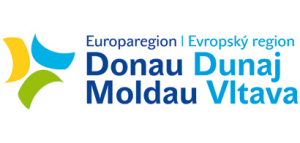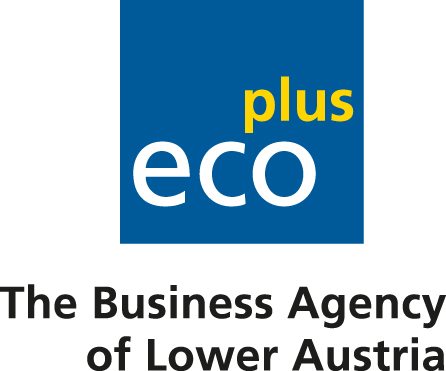Digital Healthcare Networking Event
Thank you for being at build.well.being 2021!
Fri, June 18th 2021 13:00 - 14:45 Live on Youtube | Program | Register
Review Build.well.being 2021 on Youtube
Access all areas – How participatory design and assistive technology shape a more inclusive society. The 5th annual build.well.being is a free of charge networking event for doers in Digital Healthcare. Health professionals meet developers, applied science interweaves with innovative ideas from students, companies get together with startups and experts.
A short afternoon starts with a call to action for truly inclusive design and accessibility for all and continues with insights in developing eye-tracking sensors for fighting myopia with school children. Students will showcase innovative ideas ranging from visual onboarding for radiotherapy to voice-assisted listening exercises for cochlea-implanted children and motivational apps for playing outside. In an inspiring chat the experts will finally discuss the premises and promises of digital health, wellbeing and care. The program includes (read more):
- Keynote – Accessibility and Assistive Technology – Where participatory design for a more inclusive society starts – Klaus Miesenberger (AT)
- Taking Eye-Tracking to the Real World – What we learned from developing integrated eye-tracking and sensor technology to follow the visual habits of children at school – Vanessa Leung (AT/CH)
- 5Times5 – Pitches by master students from Digital Healthcare
- Inspiring Chat by Digital Makers Hub – The experts talk on the premises and promises of digital health, care and wellbeing – Petra Plunger (AT), Klaus Miesenberger (AT), Vanessa Leung (AT/CH), Mariella Seel (AT).
Partners
Program
 13:00 – 13:25 Keynote – Accessibility and Assistive Technology – Where Participatory Design for a More Inclusive Society Starts
13:00 – 13:25 Keynote – Accessibility and Assistive Technology – Where Participatory Design for a More Inclusive Society Starts
Klaus Miesenberger (AT), head of the Institute Integriert Studieren at Johannes Kepler University Linz, long-years scientific editor of the International Conference on Computers Helping People with Special Needs (ICCHP), executive board member KI-I (Kompetenznetzwerk IKT zur Förderung der Inklusion, www.ki-i.at), past-president of the Association for the Advancement of Assisitve Technology in Europe (AAATE, www.aaate.net) and found of the society “bookAccess” (www.bookaccess.at).
The number of digital gadgets, apps, devices that promise assistance and aid is enormous. With this also the amount of data is exploding and leave a trail of questions concering accessibility and usability. This talk will search for the starting point in mastering the digital transformation for inclusion and participation. Since many years Klaus Miesenberger does research in Computer Science, Human-computer Interaction and Software Engineering related to Assistive Technologies, Accessibility and Inclusion of People with Disabilities and the aging population. He is in charge of services for students with disabilities at JKU what provides a very practical and user centered research environment.
Moderation Jakob Doppler (AT), Academic Director Master Digital Healthcare, Coordinator Center for Digital Health and Social Innovation, St. Pölten UAS
 13:25 – 13:40 Taking Eye-Tracking to the Real World – What We Learned From Developing Integrated Eye-Tracking and Sensor Technology to Follow the Visual Habits of Children at School
13:25 – 13:40 Taking Eye-Tracking to the Real World – What We Learned From Developing Integrated Eye-Tracking and Sensor Technology to Follow the Visual Habits of Children at School
Vanessa Leung (AT/CH), Center for Digital Health and Social Innovation, St. Pölten UAS, Novartis Research Foundation grant winner
Mobile eye-tracking technology has rapidly matured in recent years and stands ready to enter our daily lives. What are the potentials and challenges of “smart glasses” in the context of digital health and wellbeing? We will share some of the lessons learnt from our experience of tracking children through their school day, as we searched for insights into the global rise in myopia (nearsightedness).
13:40 – 14:05 5times5 – Master Digital Healthcare Students Pitches (5×5 min, see Showreel)

 BreathX – Stress-Free Radiotherapy: Audio-Visual Feedback to Gently Guide Patients Through Radiotherapy
BreathX – Stress-Free Radiotherapy: Audio-Visual Feedback to Gently Guide Patients Through Radiotherapy
Samuel Baumgartner, Anna Springer
+ Team: Judith Höllebrand, Lisa Meneder, Kerstin Prock, Theresia Schauerhofer
During radiotherapy with the deep-inspiration-breath-hold technique it is particularly important to hold the breath in a defined area for as long as possible to protect the heart and lungs from radiation exposure.
Patients only receive verbal instructions from the radiology technologist regarding the accuracy of their breathing performance. These instructions are not always easy to follow, cause additional stress for the patient and lead to an increased workload for the radiology technologists. With BreathX, we have developed a prototype that can provide patients with audio-visual feedback during radiotherapy, thus ensuring a stress-free and pleasant treatment experience. We expect this multi-sensory concept to reduce treatment time per session and improve patient compliance during radiological treatment, as patients can fulfil treatment requirements more easily.
 Coch-LEA – A Listening Exercise Adventure for Kids With Cochlea Implant
Coch-LEA – A Listening Exercise Adventure for Kids With Cochlea Implant
Carmen Takats, Anna-Maria Windhofer
+ Team: Johannes Ecker, Stefanie Muck, Armin Pertef, Helena Wagner
In Austria, between one and two children in 1.000 are born with a hearing disorder. A cochlea implant is oftentimes the preferred treatment method, but since the direct electrical stimulation of the implant does not sound like ‘normal’ acoustic audio, this peculiar way of hearing must be frequently practiced. However, there is little to no training material, especially in the pediatric field. The vision of this project is to combine the smart assistant ‘Amazon Alexa’ with a robot ball called ‘Sphero Bolt’ to create an innovative and interactive auditory training for children with cochlea implants. The playful learning environment increases the children’s compliance and thus improves the success of therapy.
 MatchletiX – Back to Sport with Joint Effort
MatchletiX – Back to Sport with Joint Effort
Michael Macher, Alice Rottmann
+ Team: Ina Lange, Nina Pietsch
Knee injuries are common and particularly seen in contact and impact sports. Unfortunately, many athletes do not reach their preinjury performance level or even experience a second knee injury. Evidence-based rehabilitation programs as well as knee injury prevention programs exist – however, there is often a lack of adherence, which is crucial to determine the success or failure of rehabilitation. MatchletiX is a research project that aims to identify which interactive methods can increase adherence to a health application that aims to assist athletes in their late stage of rehabilitation.
 Hospital Check-in – The Digital Patient Onboarding: Hop on the Fast Lane for Your Next Hospital Visit
Hospital Check-in – The Digital Patient Onboarding: Hop on the Fast Lane for Your Next Hospital Visit
Anna Stadler, Michael Getzinger
+ Team: Martin Elser, Simone Hofbauer, Dennis Rosner, Elena Schneider
Hospital Check-in allows you, as a patient, to check-in online from home and receive information about your treatment and the clinic before your stay, aiming for an ideal preparation. This includes digital document management, appointment schedules, checklists, and preparation videos. Hospital Check-in ensures high standards regarding data protection, language barriers and usability. Now you can start your hospital journey as easy as your check-in!
 Parktiv – The Family Gaming App for Active Playing in the Park
Parktiv – The Family Gaming App for Active Playing in the Park
Victoria Königshofer, Thomas Wolfinger
+ Team: Josef Leonhartsberger, Seda Oezsecgin, Laura Scheller, Irene Weis
In areas where families often live-in limited housing conditions, Parktiv combines the benefits of green spaces, by using parks of urban areas with an entertaining gaming solution. With the mobile gaming app Parktiv children, (grand)parents and everyone interested in getting active will get the opportunity to improve their well-being together.



 14:05 – 14:35 The Cost of Diversity – Should Technology Care?
14:05 – 14:35 The Cost of Diversity – Should Technology Care?
Inspiring Chat by Digital Makers Hub with the Experts Petra Plunger, Klaus Miesenberger and Vanessa Leung
Moderation: Mariella Seel (AT), Public Health Nerd, Doctoral Student at Johannes Kepler University Linz Medical Faculty and Researcher at Danube University Krems and St. Pölten UAS
Petra Plunger (AT), Center for Digital Health and Social Innovation St. Pölten UAS, Founding Member Competence Group on Participatory Health Research & Competence Group on Dementia Austrian Public Health Association, Member Working Group on Ethics International Collaboration for Participatory Health Research
Klaus Miesenberger (AT), head of the Institute Integriert Studieren at Johannes Kepler University Linz, long-years scientific editor of the International Conference on Computers Helping People with Special Needs (ICCHP), executive board member KI-I (Kompetenznetzwerk IKT zur Förderung der Inklusion, www.ki-i.at), past-president of the Association for the Advancement of Assisitve Technology in Europe (AAATE, www.aaate.net) and found of the society “bookAccess” (www.bookaccess.at).
Vanessa Leung (AT/CH/AU), Center for Digital Health and Social Innovation St. Pölten UAS, Novartis Research Foundation grant winner









